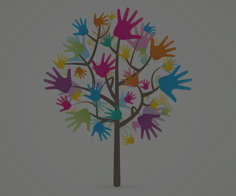MASTERS BEYOND 1-1:- Child Counselling Play Therapy
MBA aims to help children to understand muddled feelings and traumatic events which they have not had a chance to work through. Children have a natural propensity to communicate their thoughts and feelings through play. Each art form provides a different language for human experience. Art/sculpture, sand play, drama, dance, movement, puppetry and poetry can be utilised naturally and alongside or sometimes as an alternative to verbal communication. Sometimes, children lack the words with which to describe or express themselves.
Child counselling play therapy helps children in a variety of ways and the play itself is vital to every child’s social, emotional, cognitive, physical and creative development. The 1-1 sessions help children
- To understand more about their own feelings and thoughts.
- Sometimes they may re-enact or play out trauma or difficult life experiences in order to make sense of their past and cope more effectively with their present.
- Children may also learn to manage relationships and conflict in more appropriate ways.
- This in turn can bring a powerful dimension to the character, ability and perception of each child to quite literally master their inner world and engage more fully in their outside world.
Throughout the past 16 years of my own therapeutic practice alongside several school leaders, the observed outcomes for children have consistently included:
- Raised academic progress
- Higher self esteem
- Better behavioural choices
- Marked positive changes in attitudes
- Confidence in and healthy relationships
MBA interventions are provided within a robust system of qualitative and quantitative analysis which is regularly reported to school leadership and governors to demonstrate the high quality of work being carried out. The analysis is based upon the appropriate use, interpretation and integration of data from a variety of sources, including psychological, strengths and difficulties scores, rating scales from children, teachers and parents, direct and indirect structured observations and semi-structured consultations with all three.
MASTERS BEYOND GROUP WORK: – Children’s Therapeutic Groups
Group work is for all ages and the focus can include; helping children to think about friendships, communication skills, self-esteem, self-awareness, transition to High School or the next year, anger management, behavioural awareness, absent parents, bereavements and many more.
Such themed therapeutic groups can work with playground disputes, relationships, motivation, confidence issues, emotional disturbance, anxiety, loss and change. Children can be helped:-
- To form bonds with peers in a structured and creative environment that enables them to discuss feelings and thoughts openly.
- To understand that their concerns are not unique to them and that there is not ‘something wrong’ with them.
- To appreciate that others may share their concerns, fears and worries.
- This often leads to a greater willingness to work together in thinking about strategies and solutions as a way forward.
- Generally, there is a changing of habits such as learning to approach people positively rather than avoiding them or to listen better.
The group process is one of improving emotional intelligence which is a development process that we support pupils to engage in and have a positive experience of.
MASTERS BEYOND LUNCH TIME: – Children’s Self-referral drop in service for short 1-1 and groups in the lunch hour and break times.
This is an extremely popular part of the service from experience. For many children, friendship issues often hold prominence but many other issues can be communicated and worked with. This is a valuable safe space where children can talk through difficulties present within friendships/relationships and explore creative options as well as gain insight into themselves and their behaviours.
This helps the children to communicate more openly with one another enabling them to develop a more empathic way of thinking. Other issues can include; learning anxieties, separation/divorce in the family, new siblings, difficulties in making good behavioural choices, anger, worries, fears, world events that affect them and their communities and difficulties with concentration in school.
Further tailor made therapeutic options can be pursued according to the needs of the children and each class.





